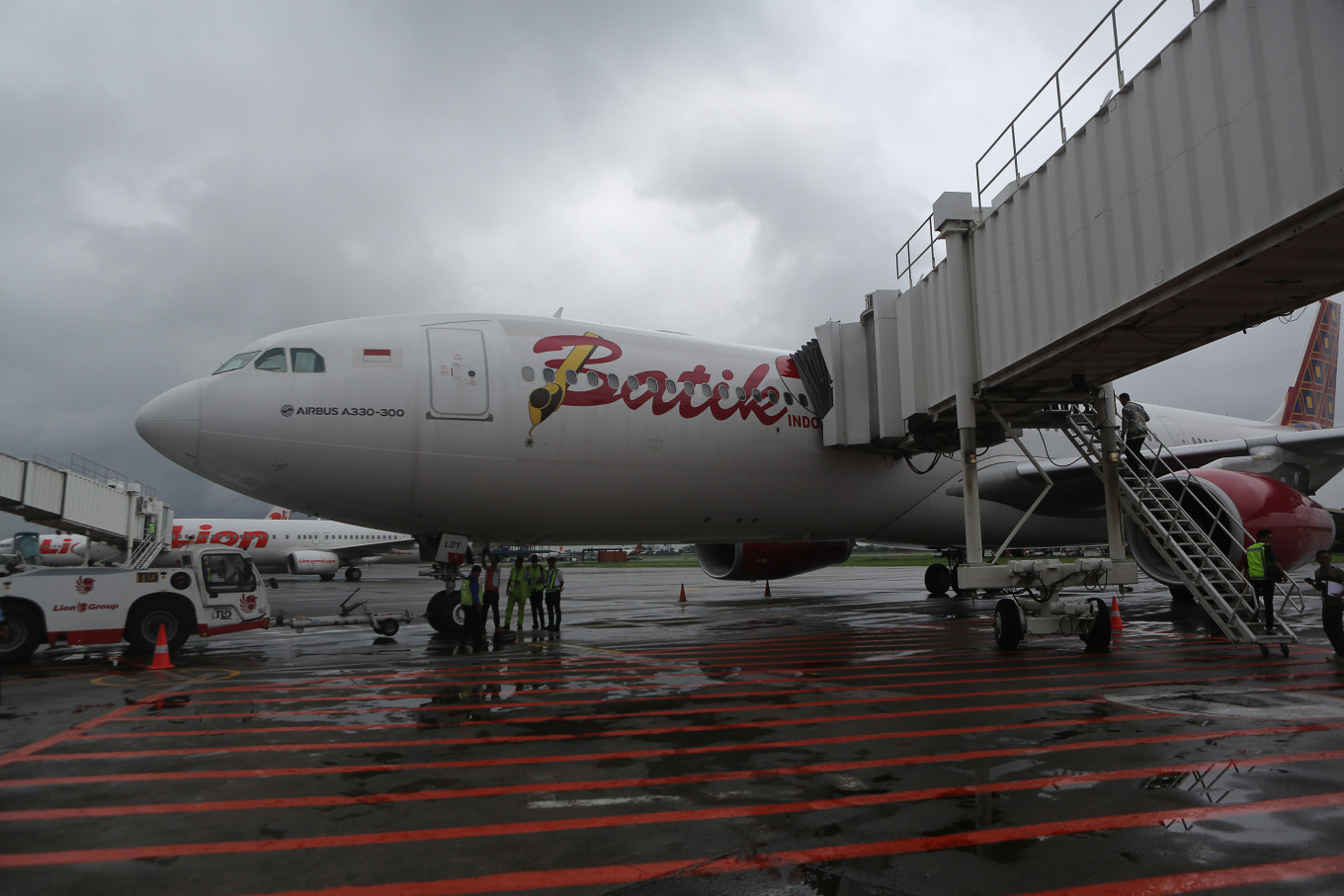Popular Reads
Top Results
Can't find what you're looking for?
View all search resultsPopular Reads
Top Results
Can't find what you're looking for?
View all search resultsFear of flying
To mitigate the fallout from incidents of pilot fatigue, the industry must adopt a proactive approach centered on transparency, accountability and continuous improvement.
Change text size
Gift Premium Articles
to Anyone
T
he trust between airplane passengers and the aviation industry is a very delicate, easily disrupted by the slightest hint of negligence or error.
This is especially true for Indonesia, home to some of the worst performers in the top 50 international airlines by number of flights, according to a 2023 survey on airline reliability.
Recent reports of Batik Air pilots dozing off during a commercial flight serve as a stark reminder of the vulnerability in air travel safety protocols.
The National Transportation Safety Committee (KNKT) reported that the pilot and the copilot of flight BTK-763 were simultaneously sleeping for 28 minutes of a two-hour flight from Kendari, South Sulawesi, to Jakarta on Jan. 25, resulting in navigation errors. The cause of the incident appears to have been fatigue.
While such incidents may appear isolated, they pose a profound threat to public confidence in the Indonesian air travel industry as a whole.
Passengers, upon hearing such news, have started questioning the integrity of every flight they board, regardless of the airline or destination. Aviation safety is back on people’s minds.
The anxiety has been made worse by a string of safety incidents on planes produced by aircraft maker Boeing, from a blown-off door panel on an Alaska Airlines flight last month and the wheel of a United Airlines flight falling on cars last week to a LATAM Air flight experiencing a sudden mid-air drop on Monday.
Most nervous Indonesian passengers can probably still recall the fatal flaws of the Boeing 737 Max fleet that led to the 2018 Lion Air crash.
Commercial aviation is a complex system built upon layers of meticulous safety measures and rigorous protocols. However, these safeguards are only as effective as the people entrusted to implement them.
Pilots, in particular, serve as the lynchpin of air travel safety, bearing responsibility for the lives of hundreds of passengers with each flight.
The mere suggestion that a pilot could succumb to fatigue and doze off mid-flight strikes at the core of passengers’ fundamental expectations: that those in charge of their safety remain vigilant and alert at all times.
At the same time, the KNKT report appears to draw sympathy to the Batik Air pilots in question. One of them acknowledged that “he did not have proper rest”, with the report later going into detail on how he was in the midst of moving house and caring for twin 1-month old babies.
And yet both pilots were declared fit for flight duty in a mandatory medical examination prior to service. Both were well within the limit of nine hours of consecutive flight hours in the span of 24 hours and both were deemed to have clocked enough rest hours.
So who’s to blame?
The incident renews concerns that Indonesian airlines still have not done enough to address safety standards. In 2007, the European Union banned all Indonesian airlines for unaddressed safety concerns over the years but gradually lifted the restrictions starting in 2009.
Lest we forget, three pilots from local airliners were also arrested for possession of crystal methamphetamine in 2020, despite calls for an industry-wide response to a similar incident some eight years prior.
As flight routes expand to more parts of the country, proper care must be put into improving fail-safe measures.
To mitigate the fallout from incidents of pilot fatigue, the industry must adopt a proactive approach centered on transparency, accountability and continuous improvement.
Regulatory bodies must also enforce the already stringent oversight measures to hold airlines accountable for lapses in safety protocols.
By addressing the root causes of such incidents, the aviation industry can reaffirm its commitment to passenger safety and rebuild public confidence in air travel.
A failure to do so would undermine the very foundation upon which air travel safety rests.











